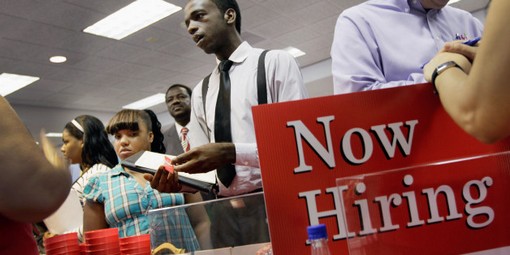Allen West: Black youth overlooked by economic boom
Allen West,
The Federal Reserve’s interest rate hike last week and indications of more to come are just the latest signs the economy is rolling. Conventional measures of unemployment are hovering near a generational low and the stock market is at a record high.
But these strong economic and labor market indicators overlook at least one demographic that is still struggling: black youth. The black youth unemployment rate increased to 25 percent in the fourth quarter of 2016, up 11 percent over the same period the year before. (White youth unemployment is roughly half that rate at 13 percent and falling.)
The situation is much worse in major American cities. In Philadelphia, the current black youth unemployment rate is 27 percent. In Baltimore, it’s 30 percent. In New York City, 33 percent. In Los Angeles County and metro Atlanta, where I grew up, it’s 35 percent. And in our nation’s capital of Washington, D.C., the black youth unemployment rate is currently an eye-watering 41 percent. In black neighborhoods in these cities the rate regularly exceeds 50 percent.
There are various cultural, economic and social factors behind this lack of opportunity for black youth. These include broken public schools and broken homes. The lack of opportunity goes beyond just a paycheck; idle hands have contributed to growing crime rates.
According to the Major Cities Chiefs Association, violent crime is up significantly in major cities nationwide. A Wall Street Journal survey finds that 16 of the 20 largest police departments reported a homicide increase in 2016. And of the four cities that decreased, three had homicide increases above 50 percent in 2015. In a vicious cycle, this crime chases away budding economic activity and opportunity. As President Trump articulated in his address to the joint session of Congress: “In order to break the cycle of poverty, we must first break the cycle of violence.”
But a contributing factor to the lack of opportunity for young black job-seekers is the dramatic minimum wage increases sweeping the country that outlaw employment below a certain wage rate. According to a recent San Francisco Federal Reserve review of minimum wage research, wage hikes cause “job loss for the least-skilled workers — with possibly larger adverse effects than earlier research suggested.” Black youth often get hit by these employment barriers the hardest because they have the least skills on the job market.

While the fight for a higher wage floor may be well-intended, public policy should focus on raising the wage ceiling for average Americans to a place where they can live a fulfilling life and provide for their families.
In other words, policymakers should try to raise the wage ceiling for average Americans by fighting for $50,000-a-year careers, not a counterproductive $15 an hour floor. When I attended Army Airborne school in 1984, the “Blackhat” instructors taught us that if you set the bar low, you will jump low. The fight for individual economic independence means setting the sights on $50,000, not $15.
To win this fight, policymakers should focus on eliminating the skills gap between 5.6 million unfilled jobs nationally – millions of which pay $50,000 or more – and the 1.6 million unemployed black Americans looking for work.
These available $50,000 a year careers are within the reach of almost anyone. They include hundreds of thousands of open jobs in fields like sales, office administration and home utility repair, which pay roughly $50,000 a year or more on average, according to the Labor Department. While these jobs often require more skills than a high school education, they usually don’t require a bachelor’s degree.
What these jobs do usually require, however, is work experience at entry-level jobs and the technical and soft skills that come along with them. Entry-level jobs in almost any industry teach skills like basic accounting, customer service, teamwork, and a sense of urgency that every employer values. These skills allow entry-level employees to quickly move up the career ladder; two academic studies suggest these skills allow minimum wage employees to earn a raise within their first one to eleven months on the job.
For America’s black youth, many of whom have been relegated to failing schools, lack of stable families, and positive role models, these entry-level jobs are the training grounds where they can pick up the skills necessary for a fulfilling career. Protecting them from the fight for $15 is therefore a vital battle in the fight for $50,000-a-year careers, the real living wage, the key that unlocks the chains of economic enslavement. Don’t forget: Before you can get a good job, you need a first job.
Allen West is a retired Army Lieutenant Colonel, former Member of Congress, and Executive Director of the National Center for Policy Analysis.





